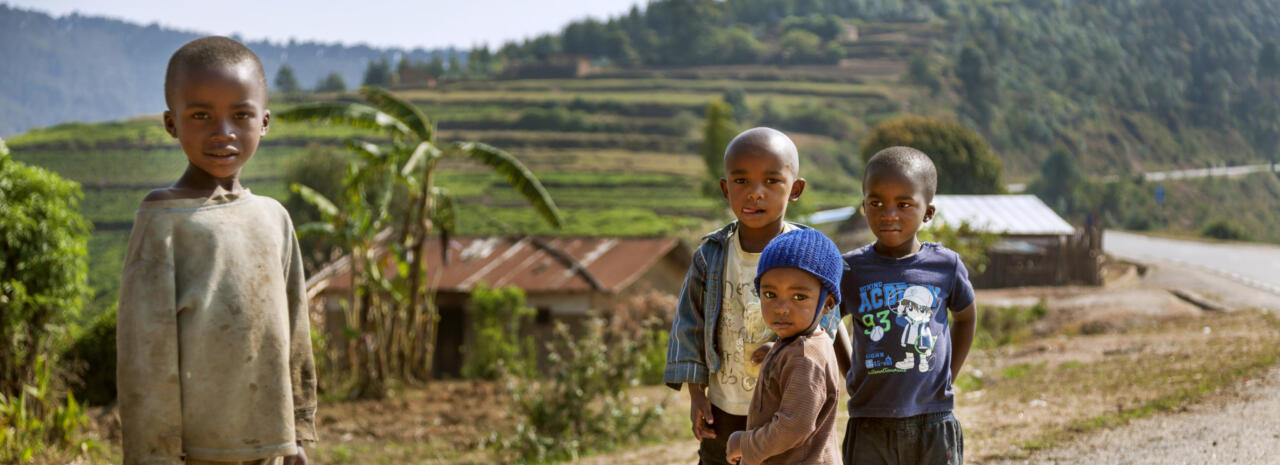
Investment case to boost Rwanda’s ECD programme
Genesis, in partnership with the National Child Development Agency (NCDA) and UNICEF, developed an investment case to support and strengthen Rwanda’s Early Childhood Development (ECD) programme for children aged 0-6 years.
The investment case was developed in a context where Rwanda has made significant strides in its commitment to ECD. With 13% of the population under the age of 5, young children are pivotal to the future of the country. Investments in young children are therefore synonymous with the long-term goals set out in Rwanda’s Vision 2050 and vital if Rwanda hopes to realise a demographic dividend.
However, despite the existence of an ECD Policy (2016) and the National ECD Programme Strategic Plan 2018-2024, many children still lack access to basic ECD services. More than three in four children under the age of 5 in Rwanda are at risk of poor development due to extreme poverty, stunting or both. More than one-third of Rwandan children are stunted, hindering their cognitive, motor, language and socio-emotional development, and potentially leading to poor school performance.
Meanwhile, the net enrolment rate for pre-primary education (for children 3-5 years) is just 24%. Children from poor families are particularly vulnerable, being nearly three times more likely to be severely stunted compared to their wealthier peers.
Despite these challenges, the investment case presents a strategic approach to improving ECD services. The analysis involved comprehensive costing models and estimations of returns on investment to guide the scale-up of quality integrated ECD services. By providing a detailed cost-benefit analysis and prior estimation of returns on ECD investment, the assignment aimed to make a compelling case for adequate resource allocation. The analysis also involved the development and costing of a minimum, comprehensive and scalable package for providing integrated and quality ECD services in the country.
We found that scaling up a basic package of ECD interventions could save over 209,000 lives by 2050. As such, infant and child mortality rates would be expected to fall by 25%, hitting the targets outlined in Vision 2050. Interventions provided in this package would mean that, on average, just under 40,000 cases of anaemia would be averted among women of reproductive age each year; this includes 2,750 pregnant women. Moreover, by 2050, up to 165,000 children (who otherwise would have been low-birth-weight) would be born at an appropriate size. By 2050, up to 2.8 million stunting cases could be averted, while wasting rates could fall from 1.1% to as low as 0.6%.
Boosts in cognitive, socio-emotional, motor and linguistic development from scaling up pre-primary education would also be expected to provide strong foundational literacy and numeracy skills, which are a backbone of future learning. This, therefore, would be expected to lower Rwanda’s primary school repetition rate. As such, each year an average of just under 70,000 additional children could progress through the school system without having to repeat. Reducing the repetition rate would lead to significant improvements in the efficiency of education spending. Quality pre-primary education could also increase Rwanda’s expected years of schooling by an additional 0.92 years per child. As the years of schooling a child receives have a direct correlation with their predicted lifelong earnings, this could result in a significant economic benefit.
Community-based volunteer child and family protection programmes such as Inshuti z’Umuryango have already been impactful in providing psychosocial support and preventing family separation. These programmes contribute to positive parenting which can drive health, nutrition and growth gains in children. The potential returns of these interventions could be significant. However, the lack of robust literature linking child protection to monetisable benefits makes it difficult to quantify the impacts of these programmes.
In total, we found that scaling up this package of ECD interventions could lead to a return of 56 Rwandan francs for every 1 franc invested. Some of the most cost-effective interventions include expanding pre-primary education and increasing coverage of health and nutrition services targeting children under the age of 2 and pregnant women. The investment case also highlighted the cost of inaction, emphasising the importance of investing in ECD now to avoid long-term consequences.
The work led to a series of recommendations to be considered by the NCDA, other stakeholders within the Rwandan government and their partners. These included actions to improve the quality and quantity of financing for early years services, as well as recommendations around strategic planning, costing, as well as monitoring and evaluation.